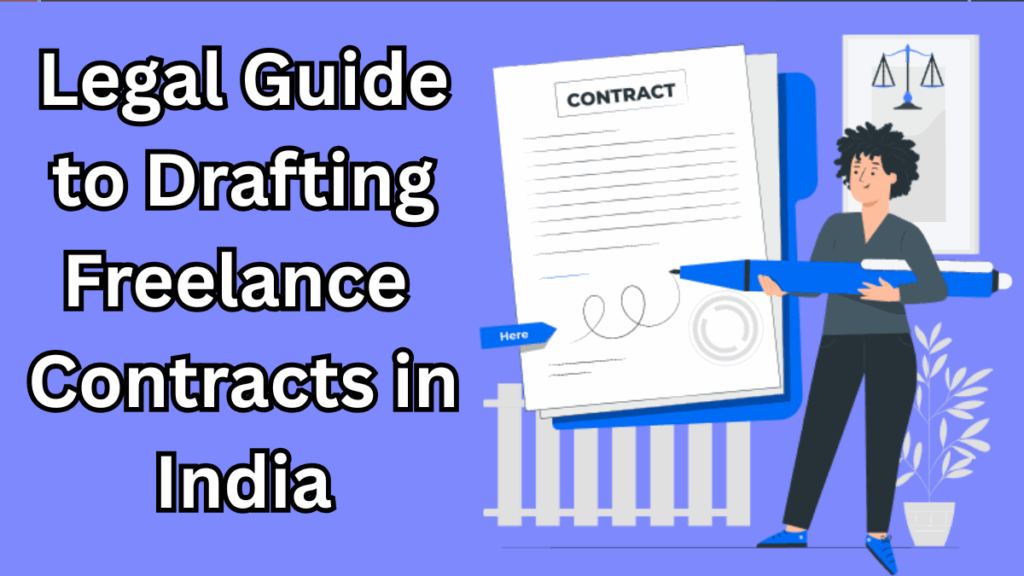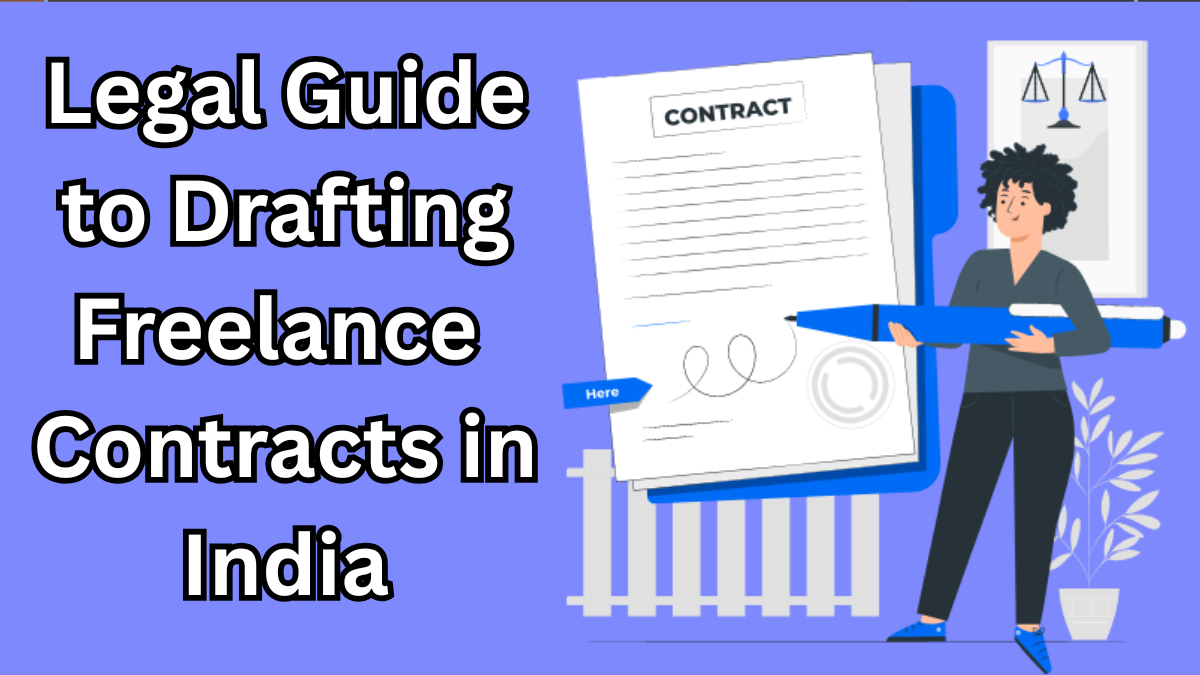Freelancing in India is booming, with professionals across industries offering services on a project or retainer basis. But one thing that often gets overlooked is the importance of a solid freelance contract. Whether you’re a designer, developer, writer, or consultant, having a clear agreement can save you from headaches later.
This Legal drafting guide for 2025 will walk you through how to draft a freelance contract in India—ensuring your rights are protected and payments are secure.

Why Do Freelancers Need a Contract?
In the dynamic gig economy, verbal agreements often lead to misunderstandings. A contract serves as a written record of what was agreed upon.
Here’s why you need one:
-
Ensures timely payments
-
Defines scope of work clearly
-
Protects intellectual property rights
-
Provides a legal framework for resolving disputes
-
Builds trust between you and the client
Key Elements of a Freelance Contract
When learning how to draft a freelance contract in India, keep these essential components in mind:
Section |
What It Should Cover |
|---|---|
Basic Details |
Names, addresses, and contact details of both parties |
Scope of Work |
Detailed description of deliverables, timelines, and milestones |
Payment Terms |
Fees, payment schedule, and late payment penalties |
Intellectual Property |
Who owns the final work (usually the client after full payment) |
Termination Clause |
Conditions under which either party can end the contract |
Confidentiality |
Protection of sensitive information |
Dispute Resolution |
Jurisdiction and process for handling conflicts |
Steps to Draft a Freelance Contract
Here’s a step-by-step legal drafting guide for freelancers in India:
-
Define the Project Clearly – Be specific about the deliverables and timelines.
-
Decide on Payment Structure – Will it be milestone-based, hourly, or a fixed fee?
-
Protect Your Rights – Clarify who owns the work and when rights are transferred.
-
Include Confidentiality Terms – Essential if working with sensitive data.
-
Add a Termination Clause – Safeguard yourself if the client ends the project abruptly.
-
Seek Legal Advice if Needed – A professional review can make your contract stronger.
Common Mistakes to Avoid
Even seasoned freelancers can make errors when drafting contracts. Avoid these pitfalls:
-
Vague project descriptions – Always be as detailed as possible.
-
No payment deadlines – Without a clear timeline, payments can get delayed.
-
Skipping IP clauses – Ensure ownership rights are addressed explicitly.
-
Ignoring dispute resolution – Set a clear jurisdiction in case of conflicts.
Why 2025 Freelance Contracts Need Extra Attention
With the gig economy regulations evolving in India, 2025 brings new considerations:
-
Increased tax compliance requirements for freelancers.
-
More emphasis on data security and confidentiality.
-
Greater need for clear termination and refund policies in contracts.
Final Thoughts
Whether you’re just starting or are an experienced freelancer, knowing how to draft a freelance contract in India is crucial. This 2025 legal drafting guide can help you create an agreement that protects your interests while fostering strong client relationships.
FAQs
1. Is a freelance contract legally enforceable in India?
Yes, a properly signed freelance contract is legally enforceable under the Indian Contract Act, 1872.
2. Do I need a lawyer to draft my freelance contract?
Not always. Many freelancers draft their own contracts using templates, but for complex projects, a lawyer’s review is advisable.
3. How can I ensure timely payment from clients?
Include a payment schedule and a clause for late payment penalties in your contract.
4. Who owns the intellectual property in freelance projects?
Ownership usually transfers to the client after full payment, but this must be explicitly stated in the contract.
Click here to learn more
